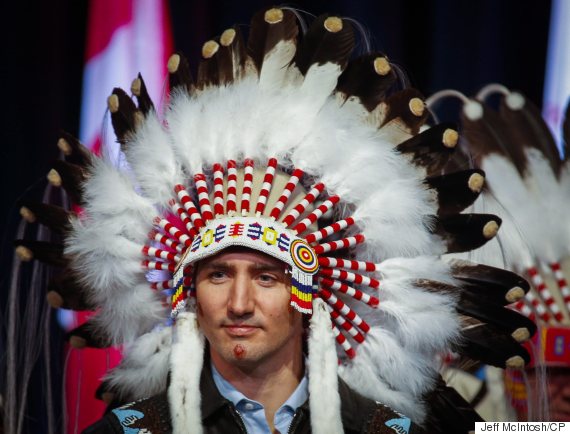All Western nations are vulnerable to romantic primitivism. But Canada is a special case, because much of our artistic and literary firmament is built on the unspoken conceit that an authentic Canadian soul can exist only in a state of nature. Most of us live in cities these days. But we are soothed by the idea that there exists some heart-pure children of the forest who remain firmly—even genetically—rooted to field and stream.
For decades, it has been a point of principle that Indigenous peoples in Canada must chart their own future without interference from outsiders. Our First Nations will have to make difficult decisions about what mix of traditional and modern elements they want in their society; and address wrenching questions about integration, relocation, language use, and education. Addressing these hard questions will be all the more difficult if Canada’s leading thinkers—even those with the best of intentions, such as the authors of In This Together—build the project of reconciliation on a foundation of attractive myths.
It is our moral duty as a Canadians to acknowledge the full horror of what was done to Indigenous peoples. But we must not respond to this horror by seeking to conjure an Indigenous Eden of postcolonial imagination—a society that never truly existed in the first place.It was brave of J. Kay to write this essay because you know it is not going to go over well with the soignée elitists/Justin Trudeau fans he hangs out with in his current incarnation as editor of The Walrus.
 |
| Speaking of someone who romanticizes primitivism, behold Justin Trudeau (Aboriginal name: Plays Not With Full Deck). |

1 comment:
"But we are soothed by the idea that there exists some heart-pure children of the forest who remain firmly—even genetically—rooted to field and stream."
Ironically enough, that field and stream to which there is a genetic connection, is in Siberia. Ain't genetics great?
Post a Comment